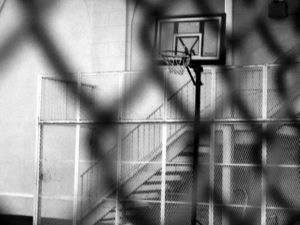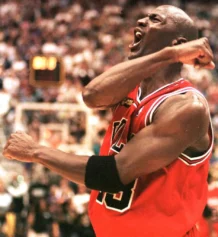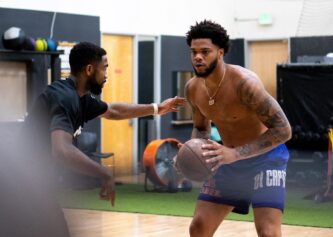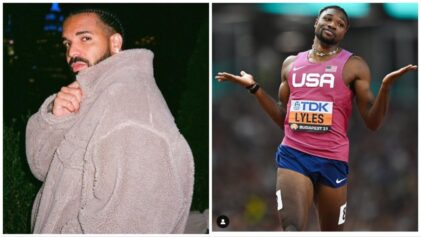Last month, Faith Baptist Christian Academy South in Ludowici, Ga., was raided by the Department of Homeland Security. Found inside the school’s gym were 30 young boys, mostly from the Dominican Republic, sleeping on the floor.
For two years.
This is just one graphic example of what often and secretly awaits young athletes who come to the United States on the promise of a high-school education and the chance to become a basketball star in college.
These kids were recruited in the subculture of underage immigrates lured to America to be used by “coaches,” agents and scouts only if they can produce on the court. If they are not as talented as expected, they are discarded like so much trash.
“It’s like modern slavery,” said Chukwuemeka “Alley” Ene, from Nigeria. Ene and three others from his country fled to the U.S. hoping for opportunity. He was forced to sleep on the floor at the foster home he ended up at in Mississippi. He had a friend at the school in Georgia that got raided.
“It’s not slavery where they put a chain on your hand or your neck,” he said. “But it’s people trying to use you.”
Among the three recruited with Ene, one ended up homeless in New York City and the other two in foster care in Michigan, according to Harper’s.
NPR summed it up succinctly: “It might seem bizarre to bring underage immigrants to the United States to participate in an amateur sport, but it turns out there’s a whole international network of scouts, coaches and agents looking to make real money by plucking rising-star basketball players from other countries and ‘getting in’ on the player’s circle of influence early on.”
All for one reason: Money.
The idea that the next Hakeem Olajuwon could be among the young talent brought over is what drives the market for teams willing to pay for players who could become a star.
According to the story, just brokering a deal—introducing the talent to basketball program—could net big paychecks. If that player becomes an NBA star and you connect them, there could be mega-bucks for you down the road, once he signs a significant NBA contract.
All of this hinges on having players considered of value, which is why scouts and coaches began scanning Africa for talent. Find a future star, and you stand to make a lot of money. But it’s a one-in-a-million shot. Some people will take those odds to have a chance. And in a lot of cases, young boys seem to be treated based on what the adults in the basketball market think they’re “worth.”
At the core of this, of course, is AAU basketball. It has long replaced high school as the game of trust and choice. Super teams are put together there, freeing a number of super-talented player to create their own dominant force. And many of those teams always seek new talents.
Sneaker and apparel companies—Nike, Adidas, Under Armor—sponsor some of the top teams that vie for the title, which means more exposure, more money.
Many teams pay the players with free shoes and jerseys, in addition to covering travel expenses, and even giving stipends that could approach $100,000.
“Ultimately, these players are just commodities to these coaches,” Sports Illustrated reported. “They import them and they try to sell them. And if they don’t find value, they trash it. They throw it away.”



